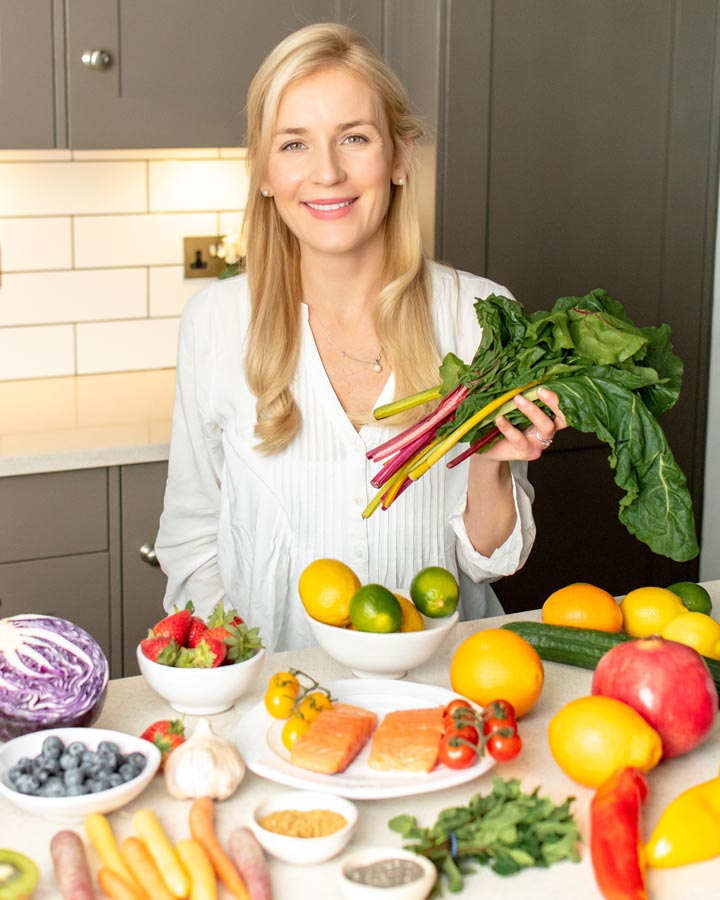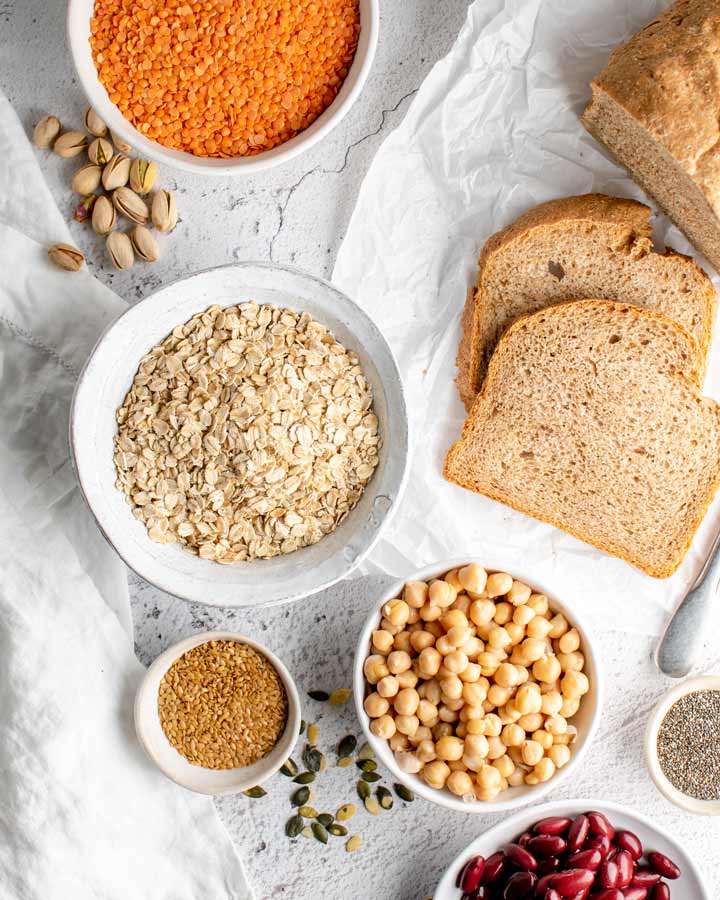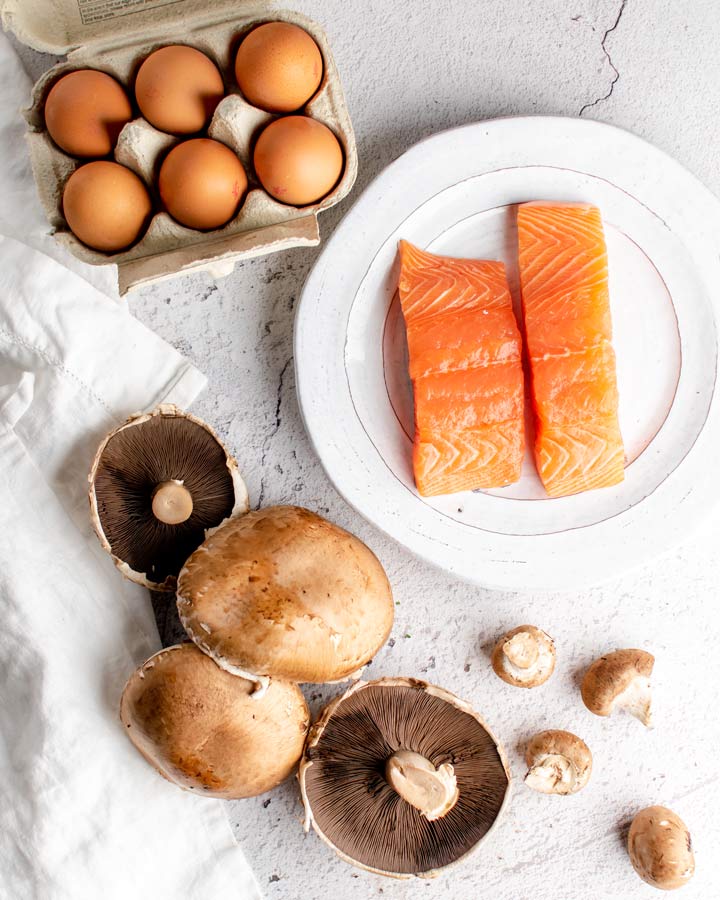The cold dark days of January along with those post-Christmas back-to-work blues can leave anyone feeling a little deflated and down. Instead of embarking on those tough January diets why not nourish your body with foods that keep you energised and positive?
Here are 6 simple ways to support mood with food this January…
1. Consider the principles of the Mediterranean diet
Whilst there’s no one-size-fits-all diet that will suit everyone, following a Mediterranean diet for 12 weeks has been shown to put depression symptoms into remission for 32% of sufferers (1). It’s important to note that whilst diet isn’t a magic bullet, and other interventions such as psychological support and medication may still be essential, it’s clear that diet can be a good adjunctive tool for supporting mood. The Mediterranean diet encompasses plenty of plant-based foods such as wholegrains, pulses, fruit and vegetables, moderate amounts of oily fish, olive oil and dairy, and low amounts of meat.
2. Enjoy fibre-rich foods
Ever experienced those butterflies in your stomach or that ‘gut reaction’? Scientists are now referring to our gut as our second brain and with good reason. The two are connected by the vagus nerve and emerging research suggests that the health of our gut bacteria may influence our mood (2). It’s possible to feed and nourish our gut bacteria by enjoying a variety of fibre-rich foods such as wholegrains, pulses, fruit, vegetables, nuts and seeds.
3. Feed the brain with smart fats
As much as 60% of the brain is made up of fat, and omega-3 fats are essential within the diet for the brain’s integrity and ability to perform. These fats may have positive effects on mood, memory and even concentration (3). Aim to include a portion of oily fish such as salmon, mackerel, sardines or anchovies into the diet weekly.
4. Don’t fear carbohydrates
Our brain runs on sugar to function and uses as much as 20% of all energy required by the body (4). All carbohydrates break down to sugar, but it’s the fibre-rich slow-release carbohydrates that provide a steady stream of energy to the body and brain. Did you know that carbohydrates also play a role in the production of our happy hormone serotonin? Try fibre-rich options such as wholegrain bread, wholegrain pasta, brown rice, potato (leave the skin on for an extra fibre boost) and oats.
5. Don’t fall short on vitamin D
Vitamin D is known as the sunshine vitamin therefore during the winter it can be easy to fall short in countries with limited daylight. A low vitamin D status is associated with an increased risk of seasonal affective disorder, a type of seasonal depression (5). Enjoy vitamin D-rich eggs, oily fish and UV-exposed mushrooms. However, in some countries, it’s also recommended to consider a vitamin D supplement during the dark winter months.
References:
1.https://bmcmedicine.biomedcentral.com/articles/10.1186/s12916-017-0791-y
2.https://pubmed.ncbi.nlm.nih.gov/15133062/
3.https://jech.bmj.com/content/70/3/299
4.https://www.bda.uk.com/resource/food-facts-food-and-mood.html
5.https://www.cambridge.org/core/journals/the-british-journal-of-psychiatry/article/vitamin-d-deficiency-and-depression-in-adults-systematic-review-and-metaanalysis/F4E7DFBE5A7B99C9E6430AF472286860


























